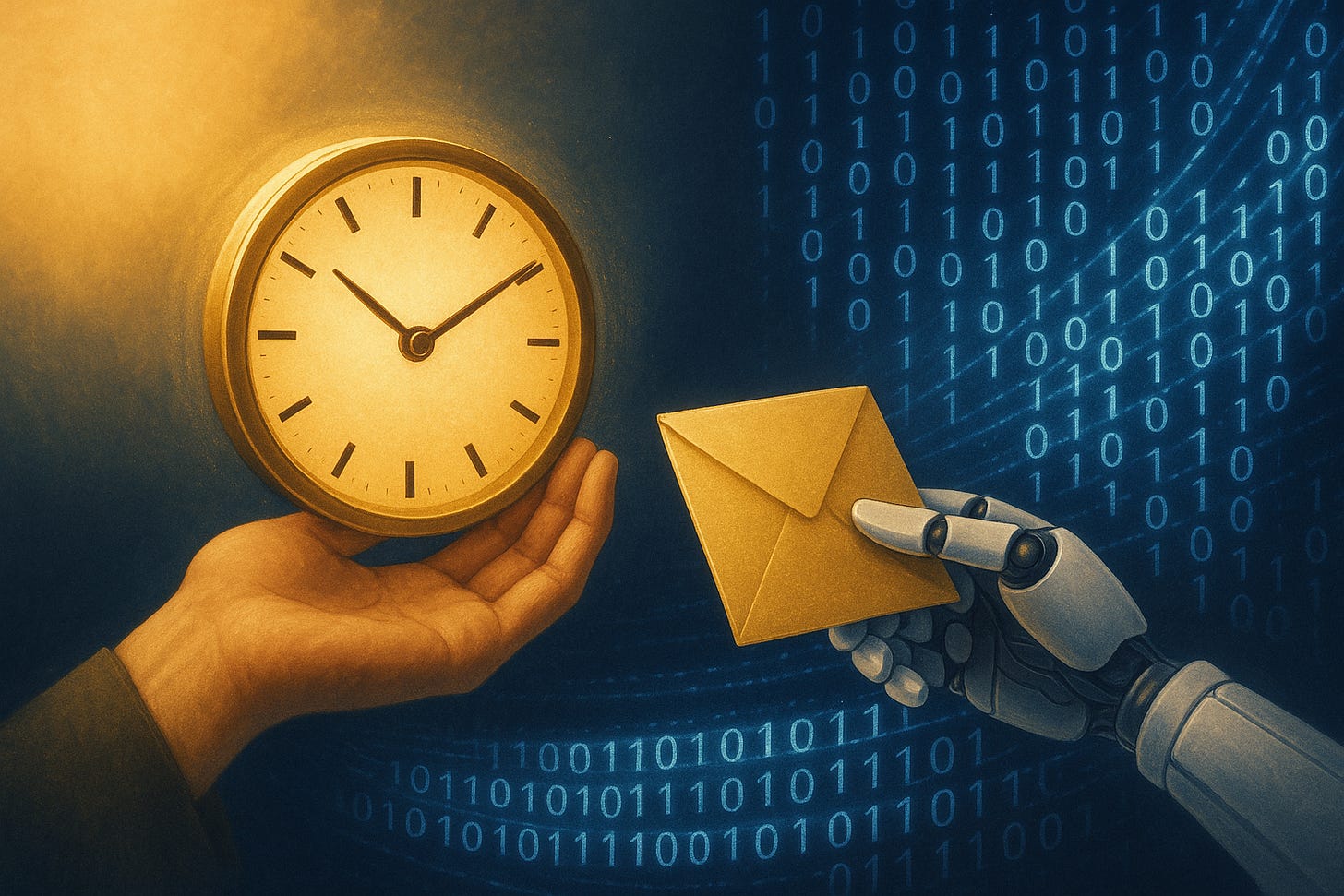What Makes a Gift Meaningful?
Does a task become more meaningful just because it takes longer to complete? Does love deepen when effort is inefficient?
We often say, “It’s the thought that counts,” but we don’t always live as if that’s true. In a world obsessed with efficiency, we also seem to equate love with labor. If someone truly loves me, shouldn’t they spend hours doing something for me? But what if the greatest gift isn't the task completed, but the presence given?
Time is our most precious commodity. Yet giving time doesn’t always mean doing something for someone. It often means simply being with them. When we substitute endless tasks for meaningful presence, we may unintentionally miss the more profound act of love.
I think of my husband offering to do my laundry when I’m tired. His love is not measured by how long the task takes or whether he uses a high-tech washer-dryer that saves time. Is my husband loving me less because he found a technology that made the task easier? His love is in seeing me, knowing what I need, and choosing to act with care. That is the true gift, not the minutes spent, but the attention given.
When AI Helps You Love Better
This brings me to a more modern kind of efficiency: AI.
Recently, I reflected on an essay by Josh Brake in The Absent-Minded Professor. He writes:
“Writing a killer recommendation letter for a student is not really about the letter itself. It's about the indication that a professor would be willing to invest the time needed to write and craft the letter... the existence of a high-quality letter from a person whose time is very valuable is the most significant part.”
I respect Josh deeply. But this time, I don’t fully agree.
The value of a recommendation letter doesn’t lie in the number of keystrokes. It lies in the relationship behind it: the shared classroom experiences, the conversations, the trust that formed over time.
When I use AI to write letters of recommendation, I don’t offload the task. I speak my heart into the tool. I use the microphone and talk aloud, recounting the student's projects, personality, moments of growth, generosity, struggles, and standout contributions. The AI helps me shape that raw reflection into a well-composed letter, but the essence is mine.
Because AI makes the process faster, I can write letters for more students, all of whom I do know and want to support. The speed does not reduce the sincerity. It amplifies my ability to give of myself.
Living on Machine Time
Douglas Rushkoff’s Program or Be Programmed also helped me understand the quiet tension we live with every day: the pressure of machine time.
Written in 2010, Rushkoff’s insights are even more relevant now. He explains that digital technologies move at an unnatural pace: instant, always-on, demanding. But we are not machines. We live in rhythms: morning and evening, attention and rest, relationship and solitude. When we try to match the speed of machines, we become scattered, stressed, and disconnected.
He gives the example of email. Once, you had to fetch your messages. Now, they arrive unbidden, insisting on attention. The technology is fast, but it fragments us.
That’s why I carefully manage my devices. Notifications are off, except for work (and even those stop at 5 p.m.). I curate what gets my attention, because attention is a limited, holy thing. And yes, I carry my phone always, due to medical necessity. But I try not to live as though I’m always available.
Ironically, this same digital world has given me AI, one of the few tools that helps me reclaim time rather than steal it. With it, I can think more, read more, and, most importantly, pray more.
Efficiency isn’t the enemy of love. When used wisely, it can help us return to what matters most.





I completely agree—presence, not just effort, is the heart of love. The use of AI doesn’t have to distance us from sincerity; it can actually enhance our ability to show up meaningfully for others. It’s not about outsourcing care, but amplifying our capacity to give it.